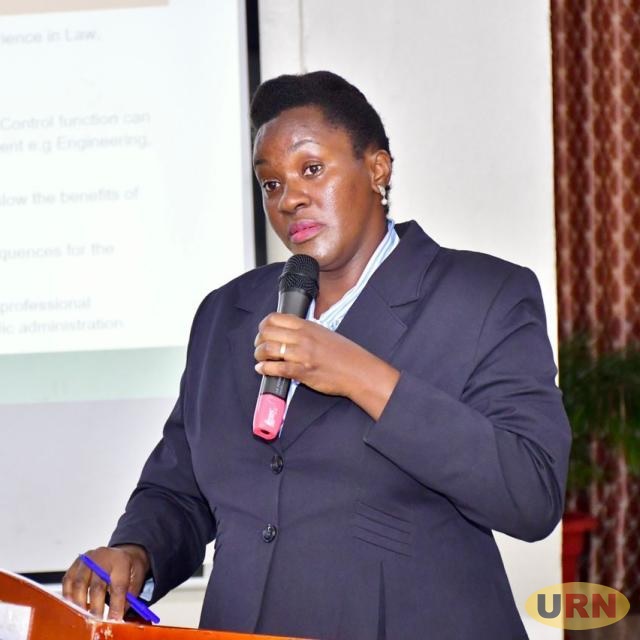
Kampala, Uganda | THE INDEPENDENT | The National Building Review Board (NBRB) is seeking powers to enable it to move faster in the enforcement of the law.
Anthony Rucukye the Manager of Investigations at the National Building Review Board told journalists that the law should be amended to provide for express penalties.
Rucukye explained that the law is not easy to implement, as it stands because it provides for a lengthy legal process that the defaulters have to go through when found in contravention of the law
The Board is a government agency under the Ministry of Works and Transport established to monitor building developments. It is supposed to ensure that the design and construction of buildings and utilities to which the public has access cater to persons with disabilities.
The Board also determines fees charged by urban and district-building Committees for approval of plans and grant of occupation permits.
The Building Control Act, 2013 was commenced in April 2018 leading to the establishment of the National Building Code, 2019, and the Building Control Regulations, 2020.
However, with just a few years of the law, the National Building Reviews Board recently described some of the mushrooming building structures in Kampala and other urban places as a “death trap”
“Despite this growth, the construction sector is littered with various challenges that have turned some buildings into a death trap. It is now common to come across buildings at the verge of collapsing, some with cracks on the walls, beams,” said the Board in its latest newsletter on buildings.
According to the Board, in September 2020, 24 people died and many more were injured after building collapses and an excavation failure in Kampala and Jinja alone.
It further noted that on 5th September 2021, a four-storied building collapsed in Kisenyi Kampala and killed six people while another three died and that on 6th May 2022 when a building collapsed in Ndejje, Makindye Ssabagabo municipality in Wakiso District.
On 17th April 2023, one person died and four others were injured after a building collapsed in Kansanga, Makindye Division.
Since January 2020, the Board has recorded and investigated 39 building accidents and 63 fire accidents. Most of the fires have been in commercial institutions with investigations attributing many of them to arson, negligence while others to electrical faults.
Those accidents were attributed to several causes, ranging from poor workmanship and construction technology to inadequate architectural and structural engineering designs.
The engagement of inexperienced and unqualified contractors and the alteration of the design during construction without adequate engineering studies were the other factors.
The failure to adequately monitor and inspect building construction, the disregard of the prevailing laws, and the lack of professionals on the building team were also cited.
With some of those incidents, the National Building Control Board on Thursday held a consultative workshop in Kampala. It brought together different stakeholders in the building industry to review suggested amendments to the Building Control Act 2013.
Those in attendance included Building Control Officers Town clerks, District Engineers, ministries Departments, and Agencies.
Herbert Zziwa the spokesperson of the board highlighted that among the people invited to the consultative meeting are people concerned with the building industry such as the Police, Building Control Officers Town clerks, District Engineers, ministries Departments, and Agencies among others to review the amendments.
Anthony Rucukye explained that when one constructs without a permit the current law provides for imprisonment for two years or paying a fine of 50 currency points.
He explained that the law is not a deterrent especially for some putting up a large structure because they can afford to forfeit a million shillings or 50 currency points.
The National Building Review Board is proposing that twenty thousand shillings or currency point fine should be imposed per square meter on those found in default
“If the landlords are compliant no one will interfere with their developments”. He stated.
Kituuma Rusoke the police spokesperson mentioned that the amendments will give police a clearer mandate in the aspects of enforcement. Police being the principal body in matters of enforcement, it was important to be part of the amendment consultations Rusoke mentioned.
He also appealed to the NBRB to bring the community on board so that they are informed about the law to avoid resistance.
Timothy Mubbala the compliance manager of the board during the launch of the National Building Control Awards in Kampala early this week mentioned that in Uganda only 22 of the buildings are compliant.
Now, the board has embarked on a mass sensitization drive by conducting barazas to educate the community.
*****
URN
 The Independent Uganda: You get the Truth we Pay the Price
The Independent Uganda: You get the Truth we Pay the Price




